Our History
Mr. Stewart Gordon.
It is hard to discuss the history of the American Traditions Vocal Competition without also discussing the history of Savannah Onstage, now known as Savannah Music Festival. Our two histories are intrinsically intertwined, and we are happy to share the recollections of the first Artistic Director of both of our organizations, Mr. Stewart Gordon.
Savannah Onstage History
In the 1980’s a group of Savannah citizens noted the success of a music festival in their neighboring city, Charleston, and believed that Savannah, too, had a potential for becoming a site for its own music or arts festival. Indeed, they reasoned that Savannah boasted a historic district as distinguished as that of Charleston, and Savannah’s hospitality was legendary
Among these early visionaries were Pastor Harcourt Waller, and businessmen Lee Adler and Ben Oxnard. Waller contacted Stewart Gordon, who had created a successful piano festival and competition at the University of Maryland. The citizen’s group persuaded Gordon to visit Savannah to talk about the project. The result was that Gordon agreed to help them realize their dream.
The challenge was to create a festival that was sufficiently different from the one in Charleston to be distinctive, but with an extremely modest budget. Gordon suggested a concert series comprised of music competition winners from around the world. It was reasoned that since the young artists had been winners in one or more major music competitions, the quality of the performances would be outstanding. Moreover, the young artist-winners could be engaged at fees considerably more modest than those they were destined to command as their careers developed. Over the next years, concerts were presented by prize-winning pianists, violinists, cellists, clarinetists, guitarists, singers, string quartets, and woodwind quintets. Jazz ensembles featured over the years were prize-winning headliners in piano, voice, bass, trumpet, saxophone, and percussion.
The historic churches of downtown Savannah were enlisted as venues for these concerts, providing magnificent surroundings of historic interest. Thus, some of Savannah’s most beautiful buildings were showcased for both local and visiting festival- goers. Each of the churches generously donated its sanctuary for an evening’s concert during these festivals.
American Traditions Competition Concept and History
News clipping from very first ATC, Judge Della Reese awards gold medal to first ever Gold Medalist, Ms. Ernestine Dillard. From collection of Ernestine Dillard.
From its inception, the supporters of Savannah Onstage had longed for some type of music competition. Once again, the challenge was to conceive a competition that was different from the many classical music competitions that were springing up both in the United States and abroad. Gordon conceived a competition for singers that was designed on the traditional classical model but that focused repertoire drawn from American music of various genres: jazz, pop, Broadway, Hollywood, gospel, as well as traditional spirituals, popular songs from earlier eras of United States history, and art songs by United States composers. The focus of this competition was virtually unique and quickly began to attract young singers who were attempting to make a name for themselves in one or more of the repertoire areas. The American Traditions Competition first took place in 1994.
Five adjudicators for the competition were drawn each year from well-known musicians in these areas, their names attracting gifted young singers who wanted to be heard by such luminaries. Among the adjudicators over the years, some of them returning several times, were Ysaye Barnwell (founder of female vocal group Sweet Honey in the Rock), Sheldon Harnick (lyricist for Fiddler on the Roof and other Broadway successes,”) Celeste Holm (Broadway and Hollywood star), Shirley Jones (Broadway and Hollywood star), Sheila Jordan (legendary jazz singer), Spiro Malas (opera star), Marni Nixon (Hollywood overdubbing star), Odetta (legendary gospel and spiritual star), Jane Powell (Hollywood musical star), Della Reese (pop and jazz star), George Shirley (opera star), Charles Strouse (composer of Annie and other Broadway successes), Blanche Thebom (classical concert and opera star), William Warfield (legendary Broadway and Hollywood star), and Margaret Whiting (pop and jazz star). Fortunately, these luminaries were able to be contacted through private connections rather than through managers. The appeal of the competition as a stepping-stone for young singers was such that they were delighted to come to Savannah for the duration of the competition and offer their professional services for reasonable fees and often gratis as professional contributions to benefit the next generation.
Dr. Ysaye M. Barnwell, Sweet Honey in the Rock.
Moreover, at various points, adjudicators often contributed to the festival week in various ways: Charles Strouse mounted premieres of two of his musicals. Marni Nixon premiered her one-woman show before it toured nationally. Ysaye Barnwell offered workshops in African-American singing. Jane Powell, Celeste Holm, and Shirley Jones each appeared in evenings recapping their movie and Broadway careers. William Warfield mounted an evening featuring three generations of African-American Singing. Ysaye Barnwell, Odetta, and George Shirley appeared together on the same informal program. Sheila Jordan presented an informal cocktail-hour jazz concert.
Those wishing to enter the competition submitted a recording of three repertoire selections in the fall of each year preceding the competition. A three-person jury selected from area or East Coast professional singers gathered in Savannah in the late fall to review the recordings and to select those to be invited to the competition. Of the typical 80 to 100 applicants approximately 40 were invited to participate live in the competition the following spring, held during the week-long Savannah Onstage festival, as a part of the festival program. Residents of Savannah generously volunteered to house, feed, and transport invited contestants during their stay in the city.
All those applicants invited participated in the quarter-finals. Each participant presented, in live performance, the recorded program that had been submitted with the original application. The quarter-finals were scheduled over several days in the early part of the Savannah Onstage festival. Twelve to Fifteen singers were advanced to the semi-finals, rounds held later in the festival week. Here they presented a longer program of 15- 20 minutes meeting another set of requirements. Six singers were advanced to the final round, typically held on Saturday night of the festival, as the main event. Each presented a 15-minute program of their own choosing, but they were cautioned that their repertoire selections should reflect the American traditions thus far encountered. The finalists were instructed not to repeat any music previously heard in the competition. The six finalists vied for first, second, and third prizes. It should be noted that there were prizes at every stage of the competition.
First African Baptist Church. Savannah, GA.
The first few ATC Quarterfinal and Semifinal rounds were held in facilities at Armstrong State University, where performances took place in the campus concert facility. Limited warm-up/practice facilities were in the music department. The final round took place at historic First African Baptist Church. By 1998 earlier rounds were held downtown in the sanctuary of Trinity United Methodist Church, a facility that had an annex building of Sunday School space that could be used for warm-ups and limited practice. In 2000 the final round was moved to the newly-opened Lucas Theater of the Arts and remained there for 2001 and 2002. As audiences grew, the 2001 and 2002 semi-final rounds were moved to the Savannah College of Art and Design’s Trustees Theater. Quarter-final founds in all these years remained at Trinity United Methodist Church.
ATC X PRD
Nowadays, the ATC continues to produce its annual vocal competition, but also produces various concerts, events, and a host of educational offerings. While the home of the ATC migrated to Skidaway Island, at Skidaway Island’s United Methodist Church for several years, the spirit of American song is still celebrated. In a return to our roots, the ATC has moved back to become a downtown event by partnering with Savannah’s Entertainment District: Plant Riverside District, for an updated version of our competition. Our partnership begins for our 30th anniversary and will be called ATC x PRD. All events feature songs written by composers and songwriters of U.S. Citizenship, inclusive of all languages, religions, and ethnicities. We are proud to represent the melting pot of America, as told through its music. We hope you will join us for our annual professional vocal competition (The ATC), our high school competition (The Junior ATC), or any of our upcoming events.







